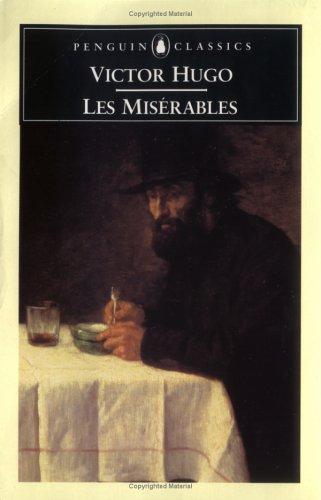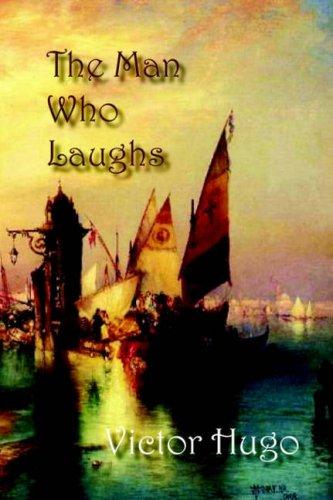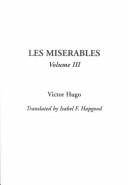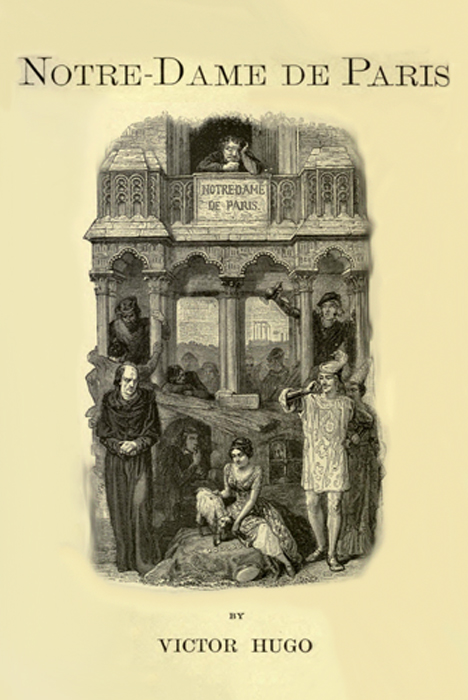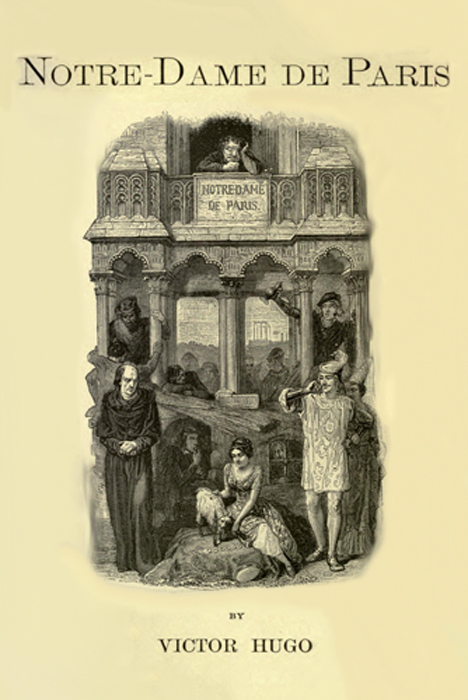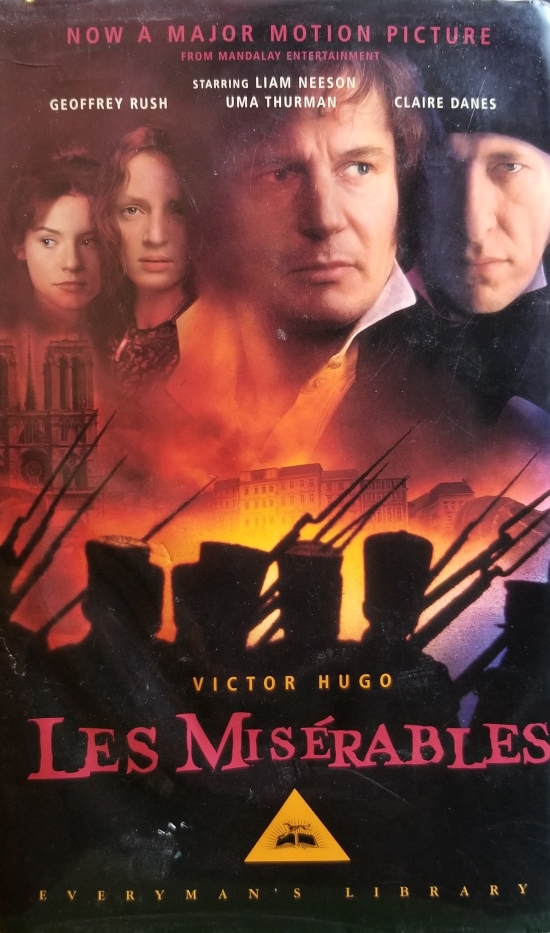Victor-Marie Hugo (French: [viktɔʁ maʁi yɡo] (listen); 26 February 1802 – 22 May 1885) was a French poet, novelist, and dramatist of the Romantic movement. During a literary career that spanned more than sixty years, he wrote abundantly in an exceptional variety of genres: lyrics, satires, epics, philosophical poems, epigrams, novels, history, critical essays, political speeches, funeral orations, diaries, letters public and private, as well as dramas in verse and prose. Hugo is considered to be one of the greatest and best-known French writers. Outside France, his most famous works are the novels Les Misérables, 1862, and The Hunchback of Notre-Dame (French: Notre-Dame de Paris), 1831. In France, Hugo is renowned for his poetry collections, such as Les Contemplations (The Contemplations) and La Légende des siècles (The Legend of the Ages). Hugo was at the forefront of the Romantic literary movement with his play Cromwell and drama Hernani. Many of his works have inspired music, both during his lifetime and after his death, including the musicals Les Misérables and Notre-Dame de Paris. He produced more than 4,000 drawings in his lifetime, and campaigned for social causes such as the abolition of capital punishment. Though a committed royalist when he was …
Victor Hugo
Informacija apie autorių
- Pseudonimai:
-
ויקטור הוגה, Victor-Marie Hugo, Fiktur Hīğū, ir 110 kitų
Viḳtor Hüγo, Weikeduo Yuguo, Viktor Marie Hugo, Vikʻtʻor Hiwkō, ב'יקטור אוגו, Yü-kuo, Yu guo, Yugō, Viktor Giugo, ヴィクトル ユゴー, Viqtūr Ūġū, Vikṭar Hyūkō, 维克多 雨果, ב'יקטור הוגו, فيكتور هوغو،, Fīktūr Hūġū, Fikṭuṛ Higu, ויקטור הוגו, Vikṭar Hiyugō, Vhikṭara Hyugo, Viktor Hyowgo, Vigt'or Hiwko, V. Gi︠u︡go, Carlo Hugo, ビクトル ユーゴー, Viktor I︠U︡go, François-Victor Hugo, Biktor Hougo, Wei-kʻo-to Yü-kuo, هوجو، ڤكتور, ویقتور اوغو, Віктор Гюго, Viktor Hjuho, Viktor Gi︠u︡go, Vìktor Gûgo, Viktor Igo, V. Giugo, Vittor Hugo, هوكو، فيكتور،, В Гюго, ايغو، ڤكتور, V. Gjugo, هيكو، فكتور, Vittore Hugo, Victo Huygo, הוגו ויקטור, هوگو، ويكتور, Vicktor Hugo, V. Hi︠u︡ho, Víktōr Hougkṓ, ヴィクトール ユゴー, V. Hugo, هوكو، ڤكتور, هوغو، فيكتور،, W. Hugo, Viktor Hiwgō, װ הוגאָ, Viktor Gjugo, هوجو، فيكتور،, Hsiao-o, Viḳtur Hüγu, هيغو، فيكتور،, ויקטור מרי הוגו, Vikṭar Hīyūkō, Victor M. Hugo, Viktar Yūgō, וקטור הוגו, וויקטאר הוגא, Vittorio Hugo, 雨果, Vitor Hugo, Fīktūr Hūkū, .. Hüγo, V. H, ユーゴー, V. Gûgo, ויקטור הוגא, Viktor-Mari Gûgo, هيجو، فيكتور،, Viktor Giġó, Viktors Igo, Βίκτωρ Οὑγκώ, ቢ̄ክተር ሁጎ, Виктор Гюго, Виктор-Мари Гюго, .. Hugo, V ユゴー, Wiktor Hugo, Vik’tur Iuyiγu, װיקטאר הוגא, Viktor Ounkō, Viktor Hi︠u︡ho, Viktar Yugo, Victor Marie Hugo, Yuguo, Βίκτωρ Ουγκώ, Fīktūr Hījū, Viktor Gûgo, Víktōr Ougkṓ, Wiqṭor Hugo, Biktōr Ugkō, هيجو، ڤكتور, Viktor Hugo, Victor Marie Comte Hugo, هوغو، ويقتور, فيكتور هوجو،, Viktor Hygo, .. Yuguo, ビクトル ユウゴオ, Victor Hugo - Gimęs:
- 1802 m. vasario 25 d.
- Mirė:
- 1885 m. gegužės 21 d.
Išorinės nuorodos
Victor-Marie Hugo (French: [viktɔʁ maʁi yɡo] (listen); 26 February 1802 – 22 May 1885) was a French poet, novelist, and dramatist of the Romantic movement. During a literary career that spanned more than sixty years, he wrote abundantly in an exceptional variety of genres: lyrics, satires, epics, philosophical poems, epigrams, novels, history, critical essays, political speeches, funeral orations, diaries, letters public and private, as well as dramas in verse and prose. Hugo is considered to be one of the greatest and best-known French writers. Outside France, his most famous works are the novels Les Misérables, 1862, and The Hunchback of Notre-Dame (French: Notre-Dame de Paris), 1831. In France, Hugo is renowned for his poetry collections, such as Les Contemplations (The Contemplations) and La Légende des siècles (The Legend of the Ages). Hugo was at the forefront of the Romantic literary movement with his play Cromwell and drama Hernani. Many of his works have inspired music, both during his lifetime and after his death, including the musicals Les Misérables and Notre-Dame de Paris. He produced more than 4,000 drawings in his lifetime, and campaigned for social causes such as the abolition of capital punishment. Though a committed royalist when he was young, Hugo's views changed as the decades passed, and he became a passionate supporter of republicanism serving in politics as both deputy and senator. His work touched upon most of the political and social issues and the artistic trends of his time. His opposition to absolutism and his colossal literary achievement established him as a national hero. He was honoured by interment in the Panthéon.
